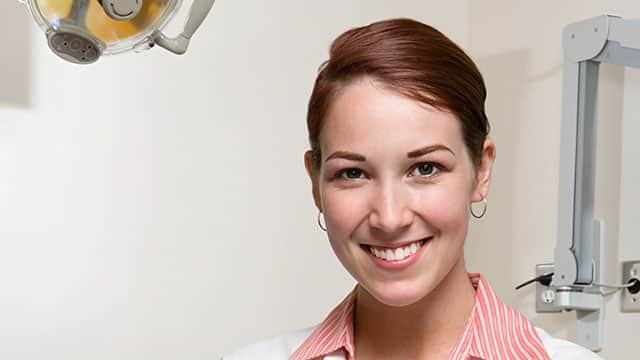You probably know that medical doctors and lawyers need more years of schooling after their undergraduate degrees. Dentists must also attend at least four years of additional school. Dentist requirements extend beyond education, though. A dental student needs to pass several exams before they get licensure. Some students will even complete more schooling to work as a specialist.
In 2020, U.S. News and World Report ranked dentistry as the second-best career in the U.S. The publication assesses the best jobs by looking at salary, work-life balance, and potential challenges. The next four sections will highlight what a person has to go through before becoming a dentist and the credentials to look for when researching your next dental health professional.
The Dental Admissions Test
The first step in considering a dental degree is determining the testing and prerequisites needed during an undergraduate degree. Any college student thinking about becoming a dentist needs to take the Dental Admissions Test (DAT). As the American Dental Association (ADA) notes, it's typically recommended that students take the DAT at least a year before applying to dental school, usually during their junior year of college.
Attending Dental School – Prerequisites and Degree Requirements
Along with their DAT scores, most students also need to have a good grade point average (GPA), experience shadowing a dentist, and excellent recommendation letters. Although an applicant doesn't need a science degree to enroll, they need some dentist education requirements from their undergraduate classes. Most programs require at least eight hours of biology, chemistry, physical science, organic chemistry, and English courses as an undergrad before applying.
Most dental schools are four-year programs. Schools either award a Doctor of Dental Surgery (DDS) or a Doctor of Medicine in Dentistry (DMD). According to the ADA, the two degrees are the same, meaning they involve the same coursework and practice methods. The only difference is the name. Look for either degree when confirming your dentist received the proper education or when researching programs for yourself!
Typically, the first two years of dental school focus on coursework. The second two years focus on clinical training, as the American Dental Education Association (ADEA) points out. The exact course of training for a dentist will vary slightly from school to school.
Passing Dental Licensure Exams
Once dental school is complete, a student needs to take and pass a series of examinations. The ADA notes three critical requirements to licensure: an educational component, a written test, and a clinical examination. Besides these three components, additional requirements for licensure vary by state.
Considering a Dental Specialty and Extra Schooling
Did you know that 20% of dentists in the U.S. are specialists? They range from oral surgeons to orthodontists to pediatric dentists. As noted above, becoming a specialist requires more training – in some cases, as many as six extra years of education and clinical experience. Once a dentist has completed dental school and all the necessary exams and potential postgraduate training, they are ready to put their learnings into practice! They can set up an office as a private practice dentist, teaching patients the benefits of daily oral care, diagnosing and treating cavities or other dental problems, and generally helping patients have the healthiest mouths possible.
Hopefully, this information gives you a deeper understanding of how to become a dentist. You can rest assured any dentist who earns a DMD or DDS degree will have had the adequate training needed to clean your teeth, teach you proper oral care, diagnose dental issues, and offer the best course of treatment. And although the road to becoming a dentist is a long one, it's well worth it for those who have a passion for improving people's oral health. Everyone needs dental care, and thus, this profession is in high demand and serves a worthy cause.
Oral Care Center articles are reviewed by an oral health medical professional. This information is for educational purposes only. This content is not intended to be a substitute for professional medical advice, diagnosis or treatment. Always seek the advice of your dentist, physician or other qualified healthcare provider.
ORAL HEALTH QUIZ
What's behind your smile?
Take our Oral Health assessment to get the most from your oral care routine
ORAL HEALTH QUIZ
What's behind your smile?
Take our Oral Health assessment to get the most from your oral care routine















